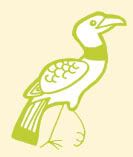
Post-Halloween there are two groups of Americans: those who put up construction paper leaves and turkeys and dream of cranberries and gravy, and those who fast forward to Christmas. I am of the former camp. Ritual togetherness in our family happened on Thanksgiving, not Christmas. I’m also never too eager to bypass autumn for bare twigs, especially now that I live in Oregon and enjoy the lengthy, splendid maritime autumn.

Like Columbus Day, Thanksgiving has a dubious history involving white people exploiting indigenous people. In these enlightened times I suppose I shouldn't be so surprised that in some camps it’s falling out of favor. One of the women I worked with last year was actually fasting that Thursday to commemorate the suffering we had inflicted on the people. And I understand that sentiment. For me personally it feels just a bit severe, and it also made me sad that she was denying herself potential fellowship. The year before -- a much harder year financially -- the Thanksgiving meal was about the only big meal I’d had in months, the first time I’d felt full since I couldn’t remember when. And it was certainly the only meal I’d had all year surrounded by so much laughter, so many friends and family.

There are so few holidays we Americans have left that focus not on commercialism but on simple things like making things and being together. I know there’s a huge emphasis on consumption -- the feasting -- but what good self respecting holiday isn’t about feasting? When more people then usual come together one can expand the usual fare, one can justify killing the fattened calf (or in this case, buying a large piece of meat, or making a stunning savory pie.)

In this difficult economic period stores and economists are keener than ever to push Christmas shopping season sooner. I worked retail in college and recall decorating a Christmas tree on Halloween night, which appalled me. Now as soon as October first non-craft stores are getting the tinsel and do-dads out. It’s hard to remain present and focused with so much external suggestion pushing you forward and into the future before you’re good and ready. There are no Thanksgiving songs, that I know of, no Thanksgiving stories other than the becoming-taboo pilgrim thing. We need more autumnal folklore. Stories about putting up the harvest and then celebrating with a feast. We need Ben Franklin to tell us all about turkeys and what he thought was so important about them. Stories about watching the leaves dance in the wind.

For myself, besides desperately wishing I had several months for those projects, I’ve recently turned to old radio plays broadcast around Thanksgiving. Something to keep me grounded while I clean houses and draw all day. They aren’t the greatest stories, nor the highest quality (unsurprisingly, my Christmas recordings are much cleaner sounding), but they’re a start. It’s nice to hear that even back in the 1940s Christmas was intruding on Thanksgiving’s territory. Stories about the whole family coming to the farmhouse interspersed with reminders that Elgin watches are really the best gift for any Christmas stocking. No escaping the sales people, even then. If you cook Thanksgiving will always be an important holiday, so the other item in my audio arsenal is every Splendid Table podcast I have from past Novembers. These aural suggestions, and this handsome paper turkey I whipped together last night, help the season remain, help the season be celebrated. It all helps time stop slipping so quickly out from under my feet.
Update, Nov. 2012: Doing a little more self-educating about the Thanksgiving story. I had originally assumed that Thanksgiving was chiefly about exploitation of indigenous peoples by the self-righteous white man, but may not be as simple as that.
When you look into the life of Tisquantum ("Squanto" as we call him) you do find slavery and oppression, but it happened fifteen years before the pilgrims landed on Plymouth rock. Upon returning to his homeland he found his entire village wiped out by diseases English slavers had brought with them years before, and he went to live in the neighboring village of Pokanokets. So when he and his friend Samoset found English people wandering around their former village-site, they were intrigued, and after watching them for a few days they went and introduced themselves.
Pilgrims had observed thanks-giving feasts in England as a religious obligation, and the Algonquin tribes also celebrated many thanks-giving festivals centered around food harvest (which really is not so hard to imagine, if you've ever grown anything yourself. It really is cause for celebration.) So after a relatively good harvest -- and the glorious prospect of surviving the winter, thanks entirely to the teachings of Tisquantum, Samoset and no doubt many others -- it really was the most natural thing in the world to celebrate with a feast to thank the Creator and one another.
I found this gorgeous essay on a website maintained by the Wampanoag Nation, which paints this friendlier, earthier picture of cultures coming together. And as they say at the end, "there is always more to the story, and not all of it filled with hope and friendship, but that part of the story is for another time to be told by the storytellers of our tribe."
Of course, if your guilt is as Catholic as mine, we can balance this friendship and hope with this unblinking piece from This American Life, about how awful the white man was to our native inhabitants. Choose your own adventure.
.


